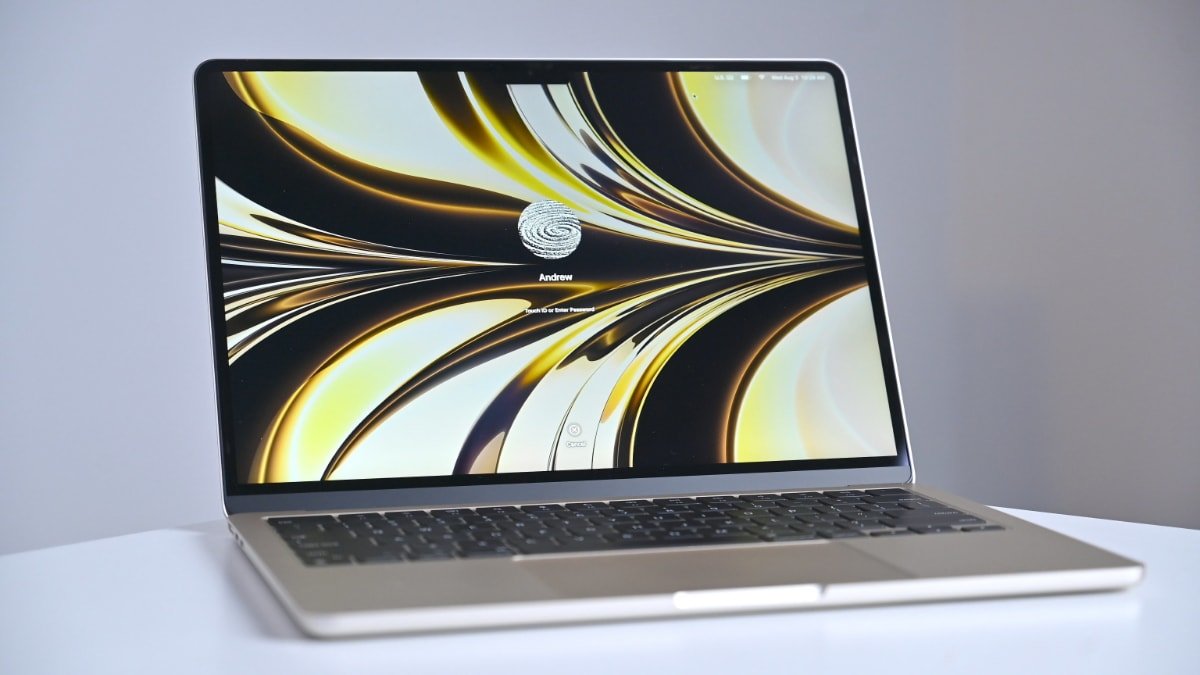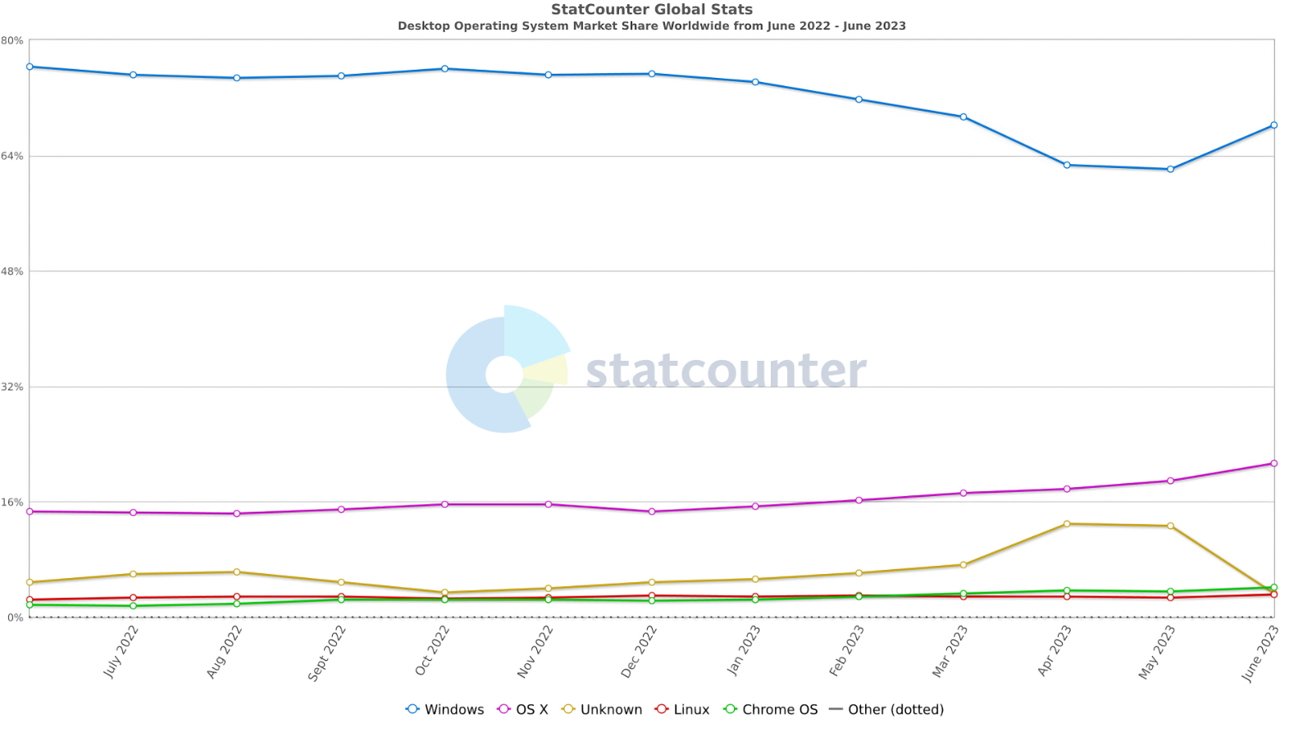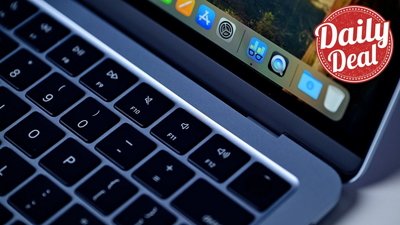Adoption of macOS has steadily risen in recent months to become the second most-used operating system in the world - and December was a turning point.
Recent statistics provided by StatCounter analyze the global market share of desktop operating systems between June 2022 and June 2023. Windows remains the dominant player with a 68.15% share, but macOS has secured the second position with a noteworthy adoption rate of 21.38%.
This surpasses the adoption rates of Chrome OS and Linux by a significant margin, which have rates of 4.15% and 3.08%, respectively. At 3.23%, an unidentified operating system exists ahead of Linux, but that may be an undetected Windows update.
The pattern of macOS adoption is interesting, as depicted on the chart. It indicates a minor decline from June 2022 to August 2022, followed by an upturn from August to October and another decrease leading to December. However, from that point onwards, macOS has consistently experienced a gradual increase in adoption.
Although Apple didn't launch new Macs in December 2022, it did in January 2023 with the release of MacBook Pro models running M2 Pro and M2 Max chips. The purchase of these high-performance computers might have increased the adoption of macOS, as this operating system is exclusive to Macs.
There are plenty of reasons for the increase in macOS adoption. For example, it's known for its sleek design and user-friendly interface, providing users with a visually appealing and intuitive experience.
Additionally, macOS is highly regarded for its seamless integration with other Apple devices and services, creating a cohesive ecosystem. Apple also focuses on security and privacy, with features like Gatekeeper, FileVault, and encryption, which may resonate with users who want a secure operating system.
 Andrew Orr
Andrew Orr









 Malcolm Owen
Malcolm Owen
 William Gallagher
William Gallagher

 Wesley Hilliard
Wesley Hilliard



 Christine McKee
Christine McKee




-m.jpg)




6 Comments
I realise businesses are still willing to compromise on the cheap windows infrastructure.
From a personal point of view, I moved to MacOS, 5 years ago and after the initial 2 months adaptation, would never go back to windows.
Mac's aren't perfect and they're expensive, but you do get value for money in my opinion, effectively they're only more expensive at the front end and it's night and day as far as user experience is concerned!
In a world with so much virtue signalling about health & safety, it's amazing how many companies, still use cheap bad for your eyes office lighting and screens 😏
Don’t worry, the EU is working on reversing that trend…….
It’s fascinating to me that the “unknown” OS almost *precisely* mirrors the change in Windows’ popularity. Kind of silly that StatCounter can’t figure out what this suddenly-insurgent OS is …
What's interesting about this is that people often confuse "new unit market share" with "in use" share. Macs are only around 8% of the units sold worldwide and yet Mac os is running at over 20% in use share. Why? I assume this means the replacement rate for PCs is much greater - IE Macs last longer and do not need to be replaced as often. It's really the only way that in use share can outpace units sold share. What's significant about this is that for software developers 8% does not sound all that interesting but 21% and growing certainly does.